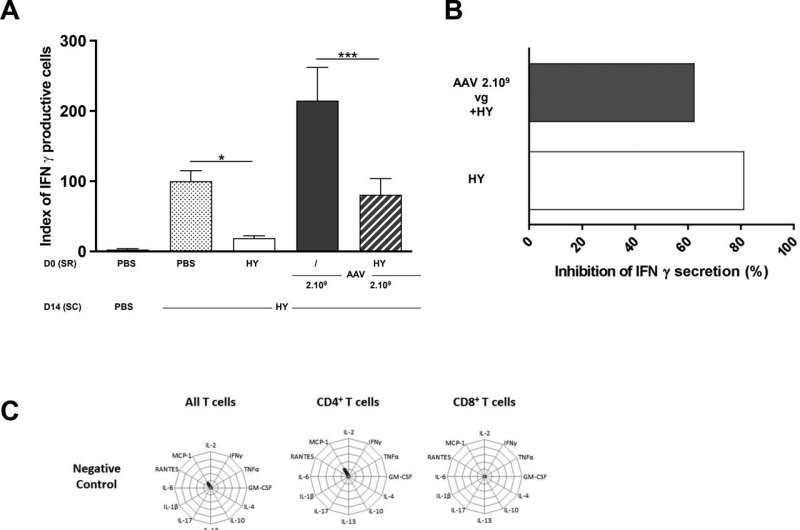This article has been reviewed according to Science X's editorial process and policies. Editors have highlighted the following attributes while ensuring the content's credibility:
fact-checked
peer-reviewed publication
trusted source
proofread
Subretinal adeno-associated virus T-cell inhibition: Exploring potential existence of anti-transgene immune responses

A new study shows that subretinal adeno-associated virus 8 (AAV8) injections cause proinflammatory T-cell immune response against the transgene product. According to the study, published in the journal Human Gene Therapy, co-injection of immunodominant peptides from the transgene product, along with AAV8, modulates the immune response at all AAV doses tested.
Despite the initial promising results of AAV-based therapy for retinal diseases, long-term follow-up of patients in some clinical trials has revealed inflammatory events and reduction of the visual field after the initial AAV-induced improvement for some patients.
Syvain Fisson, Université Paris-Saclay, Généthon, and Sorbonne Université, and co-authors, concluded that "our data suggest that injection of AAV8 in the subretinal space induces proinflammatory peripheral T-cell responses to the transgene product that can be modulated by the subretinal associated immune inhibition (SRAII) mechanism."
"Currently, clinical AAV gene therapy trials for retinal diseases rely on broad-spectrum effects of corticosteroids to dampen adverse T cell-mediated immune responses," says Editor in Chief Terence R. Flotte, MD, Celia and Isaac Haidak Professor of Medical Education and Dean, Provost, and Executive Deputy Chancellor, University of Massachusetts Medical School. "The paper by Fisson and colleagues demonstrates how a more antigen-specific immune modulatory effect."
More information: Julie Vendomèle et al, Peripheral Cellular Immune Responses Induced by Subretinal Adeno-Associated Virus Gene Transfer Can Be Restrained by the Subretinal-Associated Immune Inhibition Mechanism, Human Gene Therapy (2024). DOI: 10.1089/hum.2023.191




















